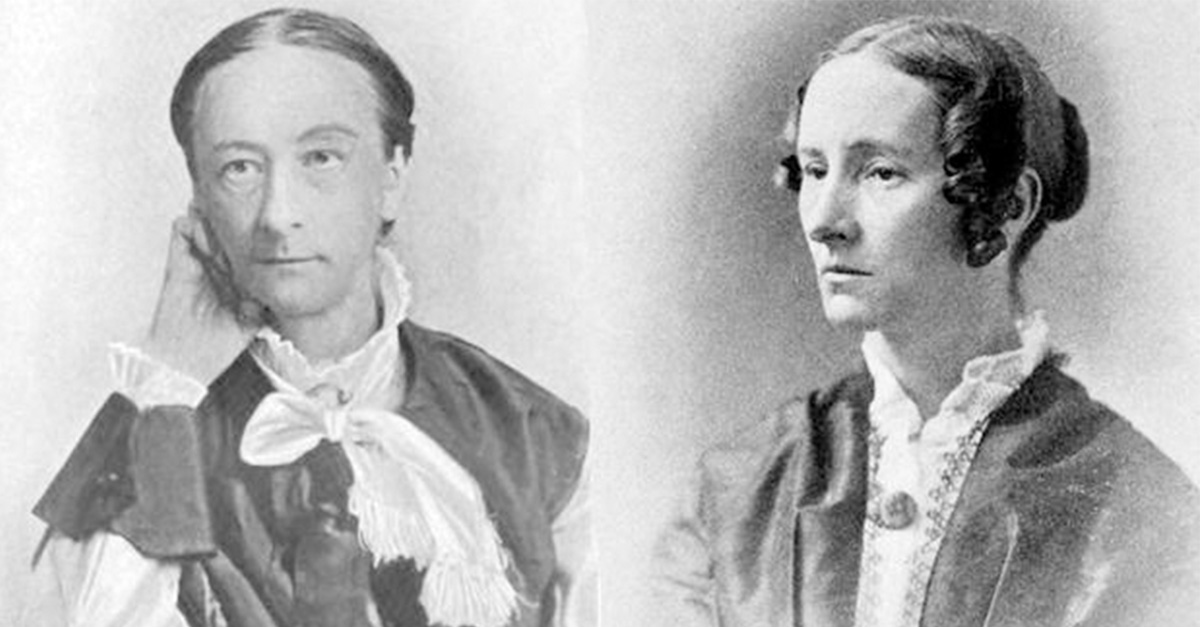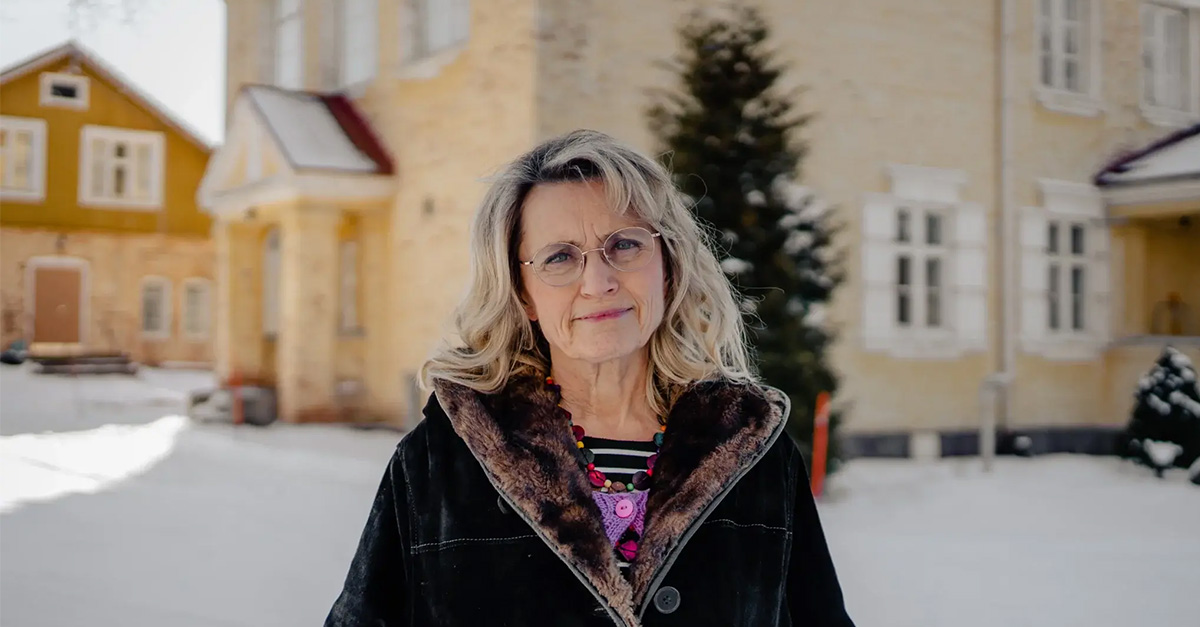


Get a free copy of Parental Rights & Education when you subscribe to our newsletter!

Susan and Anna Warner taught the Bible and its virtues to future military leaders and heroes, illustrating that the best education isn’t about vocation or worldly knowledge but about being molded to live a life for Christ.
West Point: The very name conjures up visions of military greatness, courage, and history. Some of our nation’s finest soldiers, officers, and generals attended the picturesque military academy along the banks of the Hudson River. It’s considered an honor to be selected to attend, but it’s considered an even greater honor to be buried in West Point’s cemetery, final resting ground of top generals, Medal of Honor recipients, heroes, and other famous military members.
Among these many heroes and fabled servicemembers are the graves of two siblings who are, by any measure, completely out of place. Susan Bogert Warner and Anna Bartlett Warner are the only female civilians buried at West Point, leaving one to question: What is their story, and what could they have possibly done to merit such an honor?
Their story starts with what we would consider a tragic series of events, but these would ultimately end up changing the lives of not just Susan (1819-1885) and Anna (1827-1915) but also West Point cadets and people around the world.
The girls were born into a very wealthy New York family. Their mother died when they were young, but their father, Henry, continued on as a successful lawyer and investor. Meanwhile, their uncle, Rev. Thomas Warner, who was serving as a chaplain at West Point, encouraged Henry to come to nearby Constitution Island, located in the Hudson River near the academy. Henry had visions of building a summer home on the island and purchased it and a rundown Revolutionary-era farmhouse.
Yet Henry’s visions never came to fruition as he lost his fortune in the Panic of 1837 and a number of lawsuits and bad investments. The family was forced to sell their home in New York City and move to the house on Constitution Island, where Susan and Anna would learn to do manual labor, such as chopping firewood, as well as cooking and cleaning. As the family struggled to earn a living, Susan and Anna became authors, publishing novels, hymn collections, poems, and other literature. Susan’s 1852 novel The Wide, Wide World became so popular that it outsold Charles Dickens’s David Copperfield in England. Still, the two never got rich from their writings.
It wasn’t this widely popular novel that made such an impact but later contributions. The first was found inside a novel the sisters worked on together called Say and Seal. In the story, a dying little boy is comforted by his Sunday School teacher, John Linden. As Linden holds the boy in his arms, he sings him a new song, written by Anna Warner.
The words of this song, set to music and melody in 1862 by William Bradbury, would soon give comfort to the rest of the world:
Jesus loves me, this I know,
For the Bible tells me so.
Little ones to Him belong.
They are weak, but He is strong.
The song, which contained several stanzas, was sung by West Point graduates during the Civil War, as well as other soldiers, as it brought men comfort as they faced the horrors of war.
It soon spread across the world, with the melody eventually becoming known as “China” because it was so popular among Chinese children.
Future President John F. Kennedy was serving in World War II when he and his crew were stranded at sea, but when he swam to an island to find help, he met natives on their way to church who rescued him. Later that day, the three rejoiced by singing a song they all knew by heart: “Jesus Loves Me.”
While Anna and Susan’s greatest accomplishment may have been writing what would become one of Christianity’s most well-known songs, their contributions to West Point didn’t end there.
Accounts differ on how it happened, but the Warner sisters started teaching Sunday School for the cadets in the West Point Chapel. Later they began hosting Bible studies. During the winter, the Bible studies would be held on campus, but in the warmer months, the cadets would take a boat across the river to the Warner home on Constitution Island. There, Susan would teach, while Anna would serve them tea and ginger cookies. Anna would even write a new hymn for the Sunday School group each month. The cadets who attended the Bible studies became known as “Miss Warner’s boys.”
In 1885, Susan died and Anna took over teaching the class. The Sunday School classes became Anna’s “one thought in life,” and she continued teaching the cadets until her death in 1915.
A West Pointer named Dwight Eisenhower, who graduated in 1915, is believed to have attended the class. Eisenhower would, of course, eventually rise through the ranks to become the Supreme Commander of the Allied Forces in Europe during World War II and later the President of the United States.
Faith was an important part of Eisenhower’s life, but it wasn’t until 1953 soon after his inauguration that Eisenhower was publicly baptized and joined the National Presbyterian Church. During Eisenhower’s administration, “under God” was added to the Pledge of Allegiance and Congress adopted “In God We Trust” as the nation’s motto. Eisenhower brought faith in God into public life and viewed it as an “essential foundation stone” of our republic.
What impact Anna Warner had on Eisenhower is unknown, but it is highly likely that she and her sister’s steady devotion to Christ and to the West Point cadets changed many lives. She wanted the legacy to continue. Anna, despite always struggling financially, refused to sell Constitution Island despite many inquiries because it was critically important to her that the island be willed to West Point. That’s exactly what happened, and today the Warner home is a museum to their faith and influence on the military academy and its cadets.
West Point so valued the contributions of Anna and Susan Warner that both were buried with full military honors in the school’s hallowed cemetery.
Tragically, we now live in a nation that not only doesn’t value biblical truth but harshly rejects it. Christ is increasingly cast from the public square and banned from our universities. Institutions that were once based on Christ now stand opposed to Him. Harvard University, for example, which was founded as a seminary and had as its motto Veritas Christo et Ecclisiae (Truth for Christ and the Church), appointed an atheist in 2021 to serve as its head chaplain. It’s not alone. Across the country, a growing number of universities now teach students about “queering education,” taking down capitalism, and embracing racial divisiveness.
As a result, rather than producing graduates of virtue, faith, self-sacrifice, and service, they’re busy churning out those who celebrate Hamas, support the destruction of America’s history and foundations, and shout down speakers they disagree with.
America’s college students need to be taught and influenced by those who embrace Christ and sound biblical principles. They need an education that teaches them to honor God and respect their nation. They need to be surrounded by more people like the Warner sisters, who rather than becoming bitter or seeking after their own glory, devoted themselves to Christ and the people around them, teaching the younger generations about the love of Jesus and His ways to the very end of their lives.
When parents and teenagers are thinking about what school to attend, it is important to think about not only where they can get a quality education but, much more importantly, where they will be molded into the men and women Christ calls them to be.
If you like this article and other content that helps you apply a biblical worldview to today’s politics and culture, consider making a donation here.

Notifications